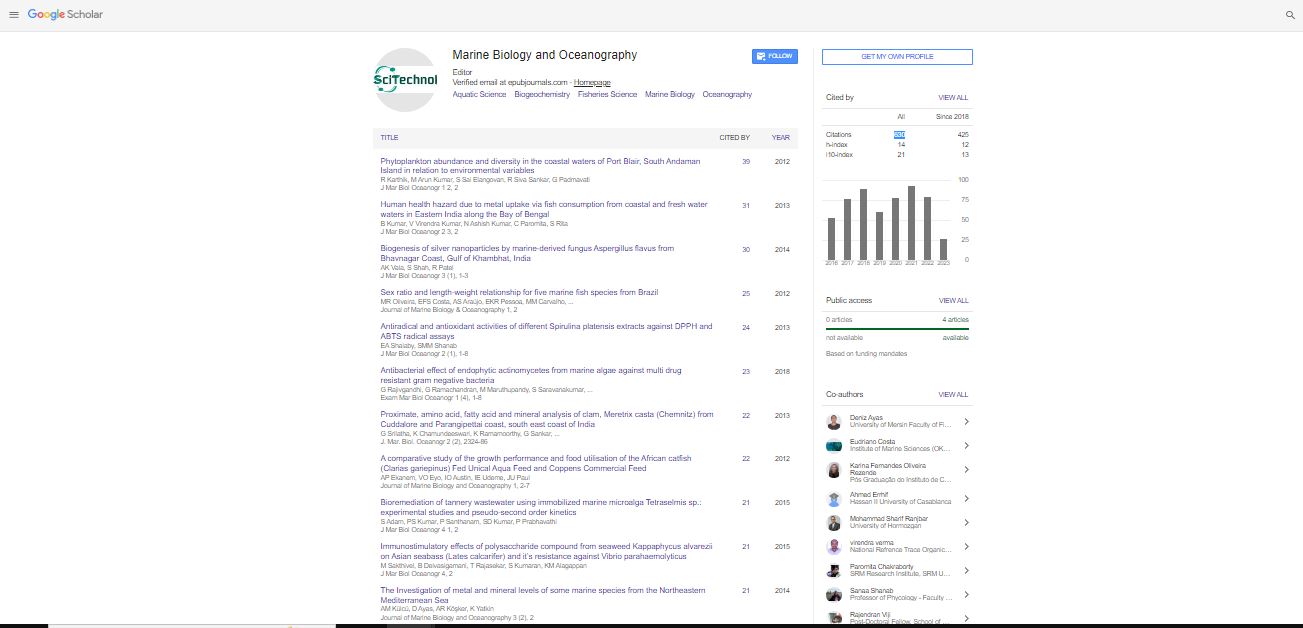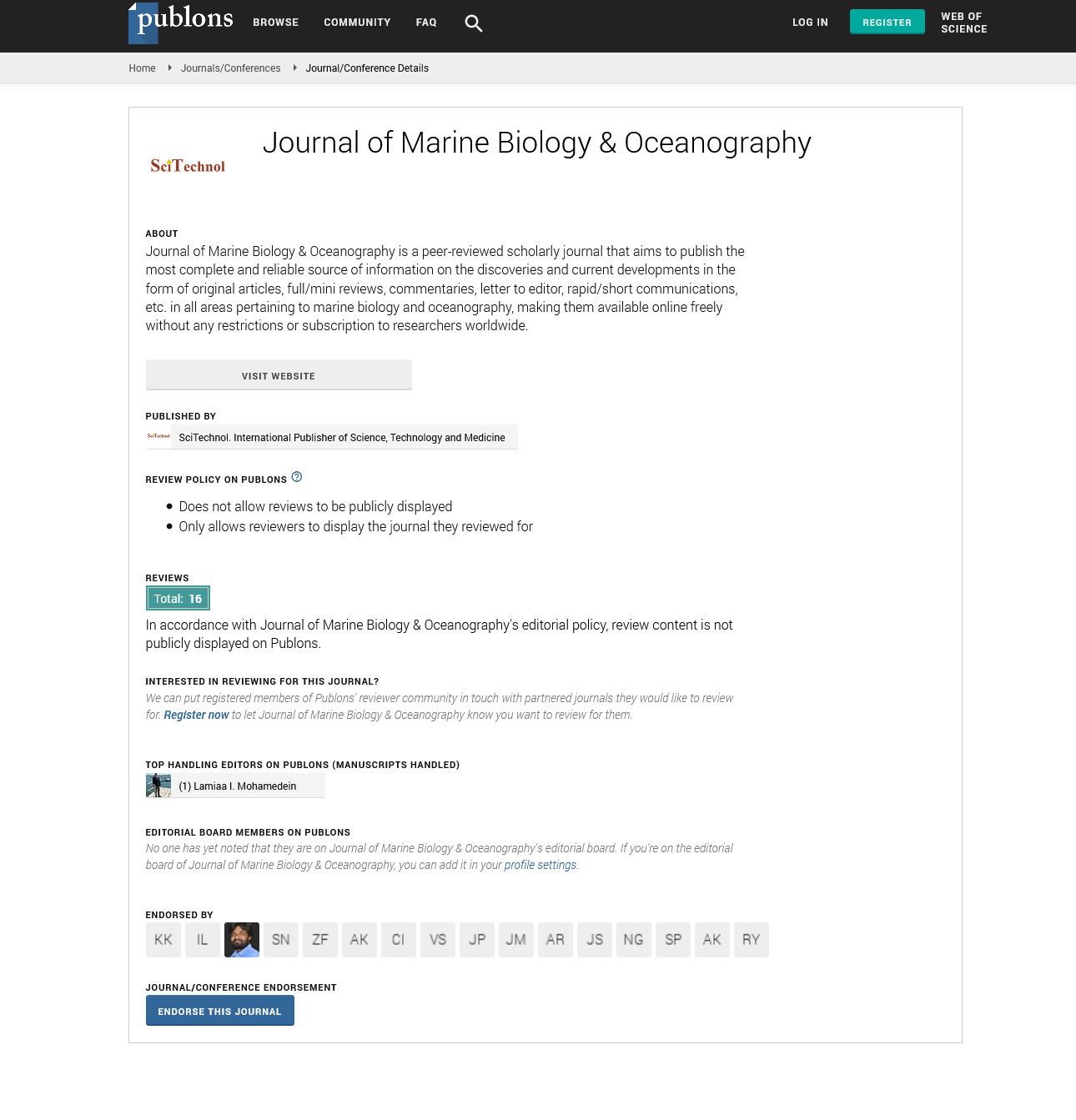Research Article, J Mar Biol Oceanogr Vol: 5 Issue: 4
Effects of Sublethal Concentrations of Water-Soluble Fraction of Petroleum on the Innate Immune System of Marine Fish Rachycentron Canadum (Linnaeus, 1766)
| Karina Fernandes Oliveira Rezende1*, Joana Mona e Pinto1, Gabriel Marcelino da Silva Neto1, Lígia Maria Salvo1, Divinomar Severino2, Luciana Machado Dzik1 and José Roberto Machado Cunha da Silva1 | |
| 1University of São Paulo, Institute of Biomedical Sciences, Sao Paulo, Brazil | |
| 2University of São Paulo, Institute of Chemistry, Sao Paulo, Brazil | |
| Corresponding author : Karina Fernandes Oliveira Rezende Department of Cell and Developmental Biology, Institute of Biomedical Sciences, University of São Paulo (USP), SP, Brazil Tel: 50 11 56313810 Fax: 50 11 56313810 E-mail: karinaforezende@usp.br |
|
| Received: November 25, 2016 Accepted: December 26, 2016 Published: December 30, 2016 | |
| Citation: Rezende KFO, e Pinto JM, da Silva Neto GM, Salvo LM, Severino D, et al. (2016) Effects of Sublethal Concentrations of Water-Soluble Fraction of Petroleum on the Innate Immune System of Marine Fish Rachycentron Canadum (Linnaeus, 1766). J Mar Biol Oceanogr 5:4. doi: 10.4172/2324-8661.1000166 |
Abstract
Effects of Sublethal Concentrations of Water-Soluble Fraction of Petroleum on the Innate Immune System of Marine Fish Rachycentron Canadum (Linnaeus, 1766)
Petroleum is a natural product derived from the decomposition of organic matter. With increasing exploration, production and transportation of petroleum, the spill accident occurrence in the marine environment has become routine. After the shedding occur various physical, chemical and biological processes that result in the water-soluble fraction formation of petroleum, rich in hydrocarbon, molecules that are toxic to fish. Thus, the objective of this study was to evaluate the effects of sublethal concentration of 0.3 ppm of the petroleum WSF in the innate immune system parameters of Rachycentron canadum, after the periods of 7 and 14 days. It was used after the normality test, statistical analysis ANOVA followed by Tukey HSD (significant difference: p<0.05). The differential leukocyte count showed an increased number of total leukocytes after 7 days and decreased after 14 days of exposure. Consequently, there is a decrease in the number of erythrocytes in 7 days and an increase after 14 days. The activity of the lysozyme enzyme in animals of group exposed for 14 days was higher compared to the animals of control group. There were, also, changes in gill and kidney tissues after morphometric and histological analysis in animals exposed to WSF of petroleum for 7 and 14 days. It was concluded that the sublethal concentration of 0.3 ppm of the WSF of petroleum alters parameters of the innate immune system of Rachycentron canadum that may cause immunosuppression. This study allows more efficient environmental monitoring on the Brazilian coast.
 Spanish
Spanish  Chinese
Chinese  Russian
Russian  German
German  French
French  Japanese
Japanese  Portuguese
Portuguese  Hindi
Hindi 
